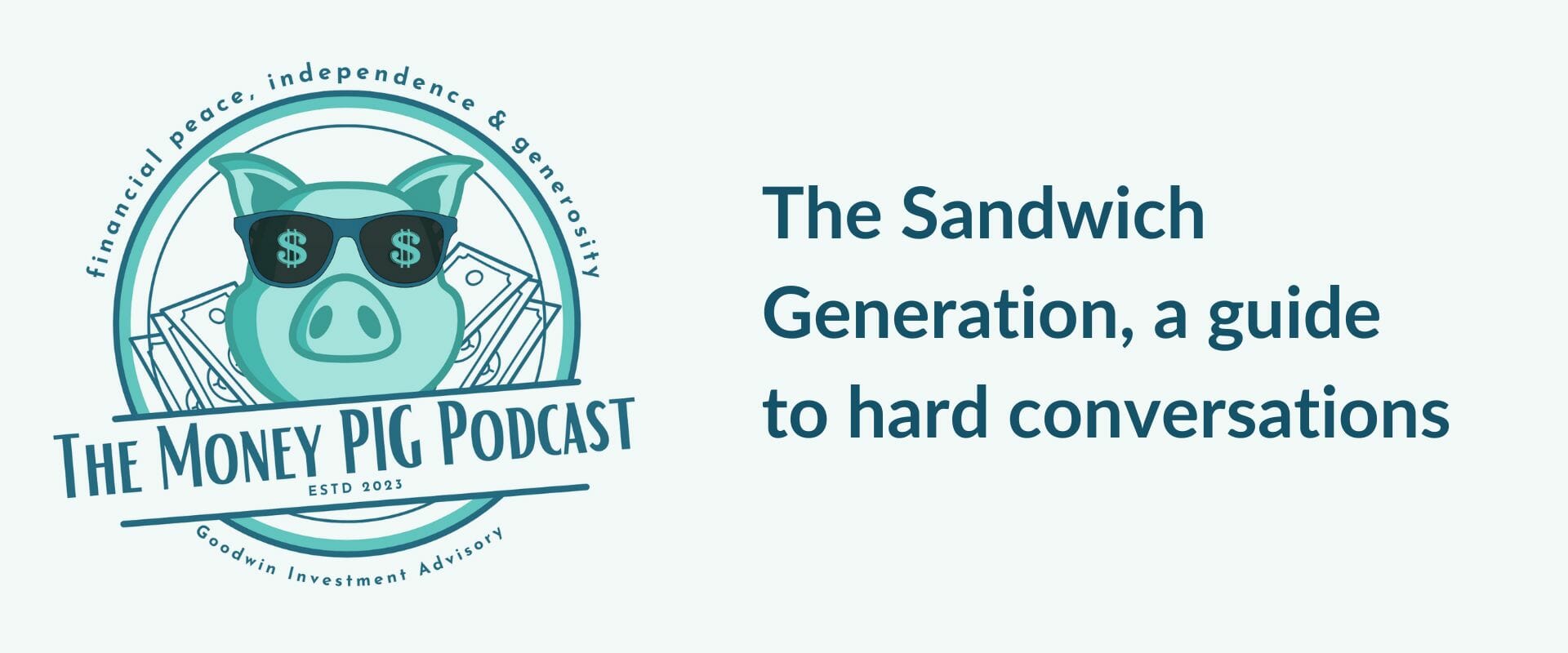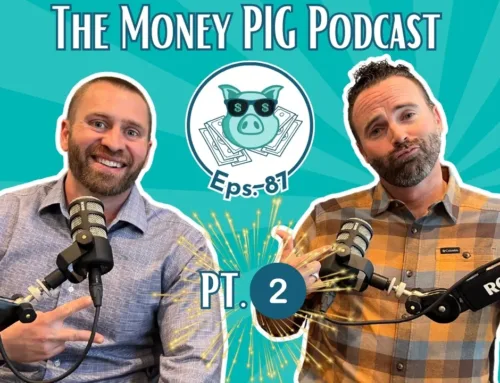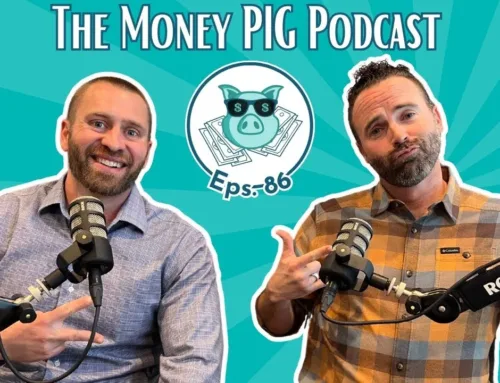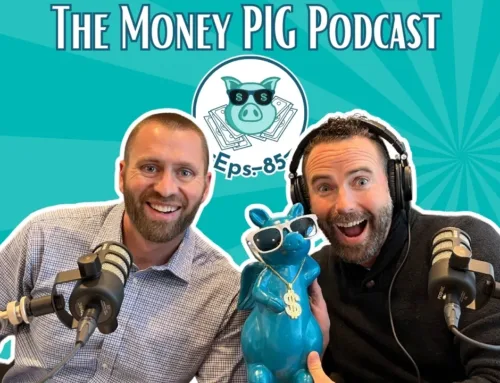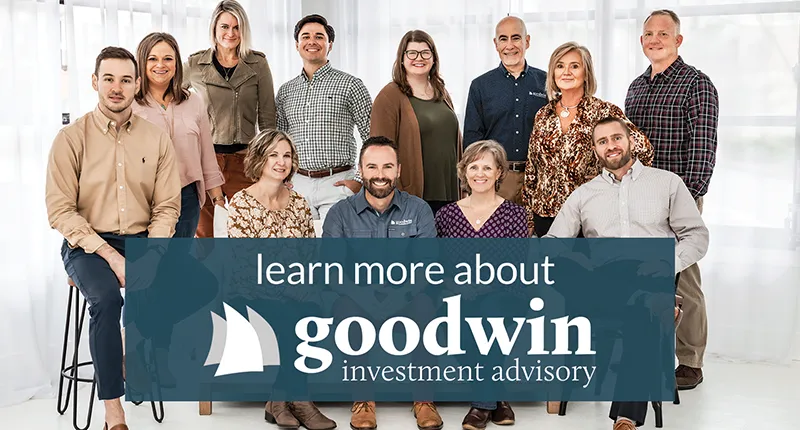*Sorry for any errors in grammar as this was generated using AI
Welcome to the Money Pig podcast, brought to you by Goodwin Investment Advisory, where our mission is to lead people to financial peace, independence and generosity. I’m your host, Reed Trigo, and today on the show, we’re joined by Joe Beckford, certified financial planner, for a discussion about our investors guide to the Sandwich Generation, which you can find on our website@goodwininvestment.com. Joe, always great to have you here.
Reed, thanks for having me back. I appreciate it.
Yeah, it’s awesome. I always love getting smarter when you’re in the room. So here we go.
Way to build my ego. That’s always a good start. Yeah.
There you go. I should have, like, the applause there. There you go.
Look at the crowd.
Studio audience.
Everybody needs canned applause. I love that.
We’re here for you. All right, so today we’re going to talk about the Sandwich Generation. Easy for me to say. It’s not, though. It’s not a happy conversation sometimes this is difficult. Right here we’re going to talk about things people don’t talk about today.
Right. It’s not only not easy for you to say, it’s not easy for somebody to do.
No.
And yet there are so many people in that boat.
Yeah. And you are of our advisor. You’re a very compassionate guy, so I thought you would be a great guy to have on to talk about this very difficult topic.
Oh, thanks, Rachel.
Okay, so tell us what the Sandwich Generation is.
So technically what that means is you picture yourself in the middle and you are a parent of children and your parents are still living and you have found yourself in the awkward situation where you’re not only taking care of your children, but also taking care of your parents.
Yeah. This would have been more fun if they called it the Oreo Generation, right? Wouldn’t it?
That was so rude.
Here I am. Yeah, this would be great.
So one thing people don’t talk about is the club sandwich. These are the really happy people. So they are taking care of their adult parents, their children, and maybe even their grandchildren. That’s the club sandwich. That’s not the club that I want to be in.
No. That’s a difficult one too, right? Oh, my golly. Okay, so this Sandwich Generation thing, I think it comes with a lot of guilt. One, just talking about it and thinking about it personally, that can create some guilt. But I think people go through this as they’re kind of walking through this phase in life, right? Sure.
I mean, it’s just normal, right? We’re all aging and it just happens. It’s just normal thing. And we have to care for our aging population and one day we’re going to be the aging population.
Yeah. So in a few minutes, we’re going to talk about what we can do about that as financial advisors or just kind of like, in some cases, life advisors.
Sure.
Right. But just to talk about some of the difficult things that people deal with here in this sandwich generation dilemma, which it’s a lot of people are somewhere in this. Either people our age are either helping their elderly parents or are supporting their children. Right. What did you read? 40, 60%, something like that?
Yeah. So the group that are affected and it reaches down into even young people like you think of millennials, and we have lots of euphemisms, funny and not about millennials, but they’re finding themselves in this situation, the 27 to 42 year olds, and then you got the Gen Xers and then the boomers are all facing that situation. So research from the Pew Charitable Trust shows that 40% to 60% of parents are currently taking care of and or helping a child and or their parents.
Wow.
That doesn’t mean you’re 100%, but to some level. But I mean, there are plenty of people that the burden is all on them.
In The Millionaire Next Door is the author Thomas Stanley. Is that his name?
Yeah.
He talks about economic outpatient care and parents are taking care of their children, their grown adult children.
Right.
And I get it. It happens. All right, so things that we look for in this sandwich generation when we’re in the middle, we’re the cream filling of the Oreo, shall we say? We’re bringing some levity to a tough topic, right?
Absolutely.
Okay, here we go. So, living options. At some point, your parents can run into trouble living on their own in their house. And that is a really difficult situation. A fall or something can create this. And so then they look at independent living, assisted living, other options, maybe moving in with their kids, if that scenario could possibly work. There are a lot of things to consider if they’re going to move in to your home. A lot of people think, well, there’s an in law basement, but there’s a lot of stairs probably too, right?
Absolutely.
That can make it complicated. But there’s a lot of things about that. We think about healthcare, how that’s going to be taken care of with Medicare, long term care insurance, which is an entire separate podcast we could do. And then there’s this Pace I just learned about.
Pace?
Pace, yeah.
That stands for the program of all inclusive care for the elderly. It’s actually a government run program. It’s available to many more people than you might think. You can get a lot of information if you just Google Capital Pace. It’s probably the first thing that’s going to come up, and it is on the Medicaid Gov website, but it provides you with a lot of resources about in home health care. So you mentioned independent living. Mom and dad want to stay in their house. Well, who doesn’t want to stay in their house? Right. So just because mom and dad need some help with activities of daily living, they call them ADLs. Right. Maybe you can get some nursing care to come in once, twice a week or something like that.
And surprisingly, you can get a lot of help with that on your own, so you might be coordinating that, but just remember, you’re not 100% responsible for that. The first option doesn’t have to be, well, I’m going to take care of mom and dad. They need to move in with me. And it’s my obligation because it’s not necessarily and it actually might not be the best for them to even do that. So when you’re considering you mentioned that guilt thing earlier, like, oh, I got to take care of mom and dad or aunt, uncle or whoever, it ends up being that you’re taking care of, you do. That’s a noble thing to do. But that doesn’t mean they have to live in your house. It might not best for you. It might not best for them either.
And there are a lot of options and a lot of resources.
I love it. Awesome. All right, so the other thing related to healthcare is some of the healthcare documents that are really important. And we talk to our clients when they’re thirty s, forty s, however old they are, and they will. Healthcare directive, power of attorney, you got all that in place and over. Yes, people do or are getting that, but often it’s, yeah, we’re getting that in place because it’s a hard conversation. You got to sit down and talk about your demise or whatever with your spouse and what’s going to happen and who’s going to make decisions. And my wife and I started that process and probably sat on it for four years one time. So I get why people don’t want to talk about it, but those kind of documents are really important too.
Absolutely. And I would know in your case for sure. You just need your estate documents wrapped up. I mean, one of the best things that you can do for your family if you want to love on your family, is make sure your estate documents are together and you brought it. You know, we live in Georgia. The primary three documents are Will durable Power of Attorney Georgia advanced health directive. Lots of states call that a living will or something like that. You just take that burden off of your family members when you have those things. But when you’re specifically taking care of your parents, durable Power of Attorney is mega important. Think about it. You’re taking care of your mom and you take her to the doctor or whatever, and you call the hospital and you want to know the test results. Guess what?
They don’t talk to you. They talk to mom. So it’s really important that if you are named as the power of attorney that you have that document, and you should probably just carry one with you. I’m going to the hospital. I’m going to the doctor. I’m asking questions or whatever that you have that you can share with people because it is your right. And I mean, you’re advocating for a loved one and you need to have that on you. Your parents might not even think about having that done, but it’s necessary.
Yeah, that’s the way you set yourself up so that you get that surprise call. Or heck, even a husband and wife get a surprise call. We’ve got to make health care decisions or anything.
Financial decision, health care decisions, all the things.
All right, awesome. So that’s all the hard part about this. Let’s talk about maybe what people can do to prepare a little bit better for when they enter this stage, if they’re going to, but a lot of us do.
Well, it’s a great question when you start thinking like hopefully that doesn’t end up happening to you. But the reality is even if you’re not there financially or you’re not the living responsibility, you’re there for emotional support for your parents and your children. So everybody is going to find themselves in this situation to some degree and it’s stressful. And so I think the best way that you can take care of yourself is to take care of yourself is self care, right? So people will tell you, oh, you should take care of yourself and you should watch what you eat and you should exercise and you should this and you should that. And those are all true, but they’re really especially true. I always like to use that analogy around an airplane, right.
When we’re flying on an airplane, what do the flight attendants always tell you? And we zone out, but we’re thinking, should we lose cabin pressure? You put on your oxygen mask before your children or anything else. That is because you can’t help anybody. If you’re unconscious, you can’t do anything. If you’re sick, you’re in the hospital. You need to take care of yourself. And so that comes in forms of physical mental, spiritual, and financial, right? Physical. You got to exercise, you got to sleep, you got to eat.
Right?
Maybe do some yoga, stretch yourself out on the mental side, do some meditation. If you’re in the thick of this, it’s rough and there is no shame in getting a counselor and getting some help to lean on for that. Actually, I think that’s a source of strength. So I mean, do that exercise your spiritual muscles and having a really strong faith life is really going to help you go through that process as well. And then finally is financial. Probably one of the best gifts that you can give your family is maybe be the last of the sandwich generation.
That’s solid right there.
A lot of people are taking care of their parents because their parents didn’t plan well. It is what it is, but here we are and could we have done something better if we’d gone back in time 20 years ago and your parents had maybe made some different decisions, would we be in a different situation today?
Especially financially?
Especially.
There’s probably all others too, but we would talk about financially because I think about I’ve met with saving clients and their parents maybe weren’t great financial planners and maybe struggling. Now they’re providing some outpatient economic support. Right. But where’s that leaving them for their long term planning? And where is that going to put them when they’re ready to retire? Because they’re pouring a lot of money into supporting parents.
Yeah. And we hear that from individuals that like, well, I’m delaying my retirement or I’m taking money that I would be socking away for my retirement and I’m having to take care of somebody else. Well, you’re perpetuating the problem. Right. You’re perpetuating the cycle at that point. And so getting your own house in order is probably one of the best gifts that you can give not only yourself, but the generation that’s coming behind you that you’re going to be leaning on.
Sometimes we sit there and like, well, at least we’re kicking the ball down the road, right. I don’t know.
We’re making progress.
At least it’s not our problem. I don’t want to joke about it, but I could see if I were sitting across from a couple, them making the best decision in that moment that they know how to make, because the closer you get to a problem, the more complex it becomes.
Sure.
Right. They’re making the best decision they think they can make at that moment. And some of these things are just so hard. So this is one the sandwich generation conversation.
It is one. I mean, there’s not easy answers at all. Like I said, if I could give anybody any advice, it would be just take care of yourself. Set boundaries around what you need for a healthy living. Because the only way you’re going to help people over the long haul is if you’re here for the long haul. And you’re know that’s. Right.
Joe, thanks very much for being on the show today.
Thanks for having us. I wish I had like an easy.
Answer, but not on this one.
This isn’t a problem. This is just life. Yeah, that’s right. This is just life. We just navigate it as best we can as we go.
It’s like gravity. It just exists. Yeah, we’re here for it. All right. As financial advisors, we manage and rebalance portfolios. It’s kind of what we do. But the unique value that we offer is that we work to understand our clients individual goals so that we can have these types of very personal, very unique planning conversations with each individual. So again, Joe, thanks for being with us.
Yeah, thanks for having me.
All right, thank you all for joining us. We’ll see you next time on the MoneyPig podcast.
The Money Pick Podcast is hosted by Reed Trigo, a financial advisor at Goodwin Investment Advisory. This podcast is intended to share information and perspectives, but should not be interpreted as legal, financial or tax advice. The opinions shared by participants are not necessarily endorsed by the company. Goodwin Investment Advisory is regulated by the SEC, and the company operates in compliance with applicable securities laws and regulations.
